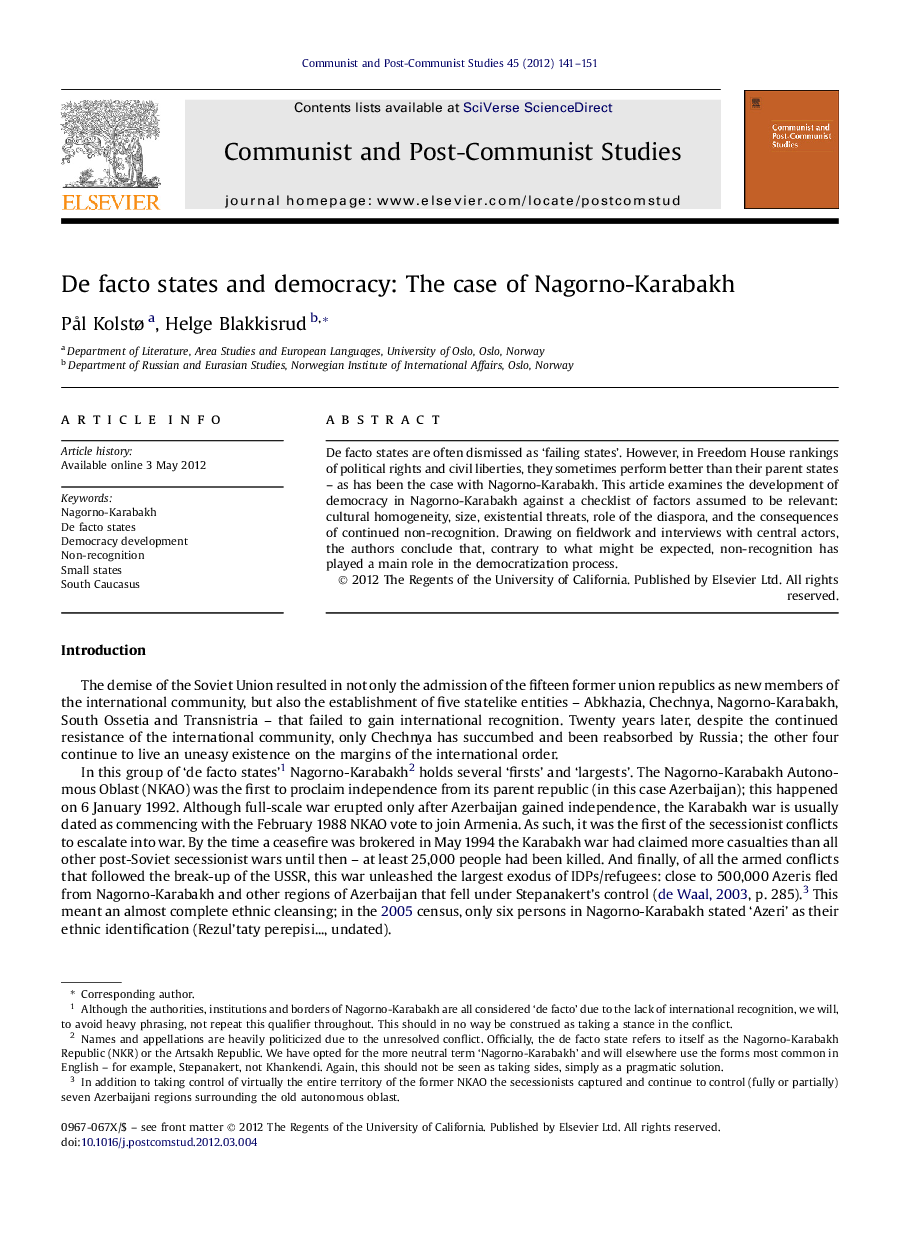| Article ID | Journal | Published Year | Pages | File Type |
|---|---|---|---|---|
| 1046676 | Communist and Post-Communist Studies | 2012 | 11 Pages |
Abstract
De facto states are often dismissed as ‘failing states’. However, in Freedom House rankings of political rights and civil liberties, they sometimes perform better than their parent states – as has been the case with Nagorno-Karabakh. This article examines the development of democracy in Nagorno-Karabakh against a checklist of factors assumed to be relevant: cultural homogeneity, size, existential threats, role of the diaspora, and the consequences of continued non-recognition. Drawing on fieldwork and interviews with central actors, the authors conclude that, contrary to what might be expected, non-recognition has played a main role in the democratization process.
Related Topics
Social Sciences and Humanities
Social Sciences
Development
Authors
Pål Kolstø, Helge Blakkisrud,
